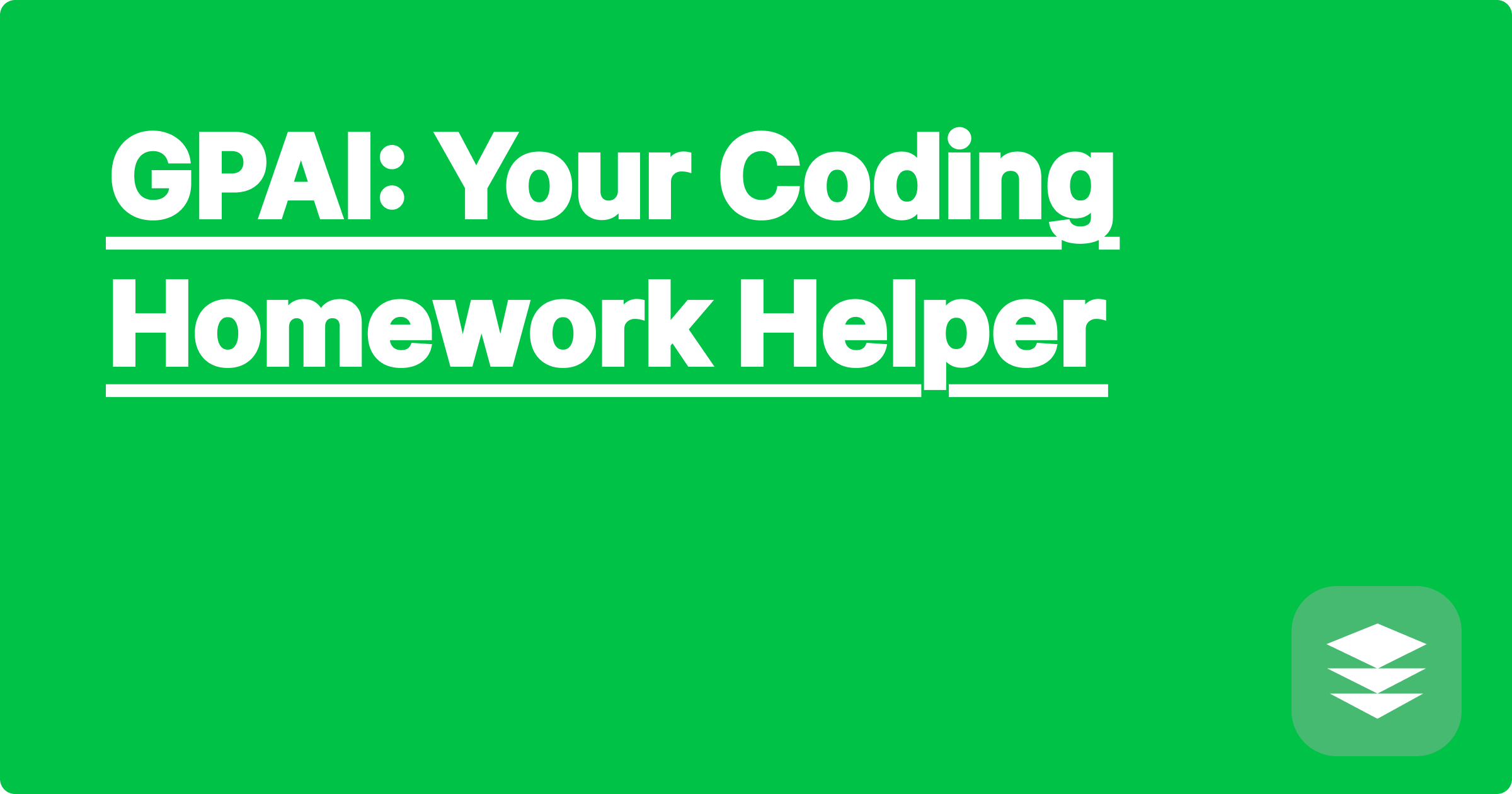
The demanding world of STEM education often presents students and researchers with complex coding challenges. Juggling theoretical concepts with practical application can be overwhelming, leading to late nights and frustration. Fortunately, the rise of Generative Pre-trained Transformer (GPT) models and other AI tools offers a powerful new approach to tackling these hurdles, providing intelligent assistance and accelerating the learning process. These AI tools can act as personalized coding tutors, offering support, generating code snippets, and explaining complex concepts in an accessible way.
This emerging landscape of AI-powered learning has significant implications for STEM students and researchers. It democratizes access to expert-level assistance, enabling students to overcome coding roadblocks and delve deeper into the underlying principles. Researchers can leverage these tools to automate tedious tasks, explore new avenues of inquiry, and accelerate their research workflows. Ultimately, embracing these AI tools can empower STEM individuals to reach their full potential and contribute meaningfully to their fields.
STEM fields often require students to translate abstract concepts into tangible code. This process can be particularly challenging for those new to programming, as it demands a deep understanding of both the theoretical underpinnings and the practical implementation. Students often struggle with syntax errors, debugging, algorithm design, and understanding the logic behind specific code structures. Furthermore, the sheer volume of coding assignments and the pressure to perform well can lead to burnout and discourage students from pursuing STEM careers. The complexity of programming languages, combined with the ever-evolving nature of the field, creates a constant need for effective learning resources and support systems. This is where AI-powered tools can step in to bridge the gap.
AI tools like ChatGPT, Claude, and Wolfram Alpha provide a novel approach to tackling coding challenges. ChatGPT and Claude excel at generating code in various programming languages, explaining complex concepts, and offering suggestions for improvement. They can be used to create code snippets for specific tasks, translate code between languages, and even debug existing code. Wolfram Alpha, with its computational prowess, can be invaluable for solving mathematical equations, visualizing data, and performing symbolic computations, which are often integral to STEM projects. By leveraging the strengths of these different AI tools, students can create a comprehensive support system for their coding endeavors.
Begin by clearly defining the coding problem you are trying to solve. Articulate the specific task, the desired inputs and outputs, and any constraints or limitations. This clear problem definition will serve as the foundation for your interaction with the AI tool. Next, choose the appropriate AI tool for the task at hand. For generating code, debugging, or explaining concepts, ChatGPT or Claude would be suitable choices. For mathematical computations or data analysis, Wolfram Alpha is a powerful option. Then, formulate your query or prompt in a clear and concise manner. Provide sufficient context and details to guide the AI towards the desired outcome. For example, if you are asking for a code snippet, specify the programming language, the desired functionality, and any relevant input parameters. After receiving the AI-generated output, carefully review and analyze the results. Verify the code's correctness, ensure it aligns with your initial requirements, and test it with various inputs. Don't hesitate to refine your prompts or ask follow-up questions to further improve the output. Remember, these AI tools are designed to be interactive and iterative, so engaging in a back-and-forth dialogue will often yield the best results.
Consider the task of writing a Python function to calculate the factorial of a number. You can prompt ChatGPT with something like: "Write a Python function to calculate the factorial of a number n." ChatGPT might then generate a function like: def factorial(n): if n == 0: return 1 else: return n * factorial(n-1). This function recursively calculates the factorial. Alternatively, you could use Wolfram Alpha to compute specific factorials directly by inputting something like "factorial(5)" which would return 120. As another example, if you are working with a complex physics problem involving projectile motion, you could use Wolfram Alpha to solve the equations of motion and visualize the trajectory. You can input the initial velocity, angle, and other relevant parameters and Wolfram Alpha will provide the solution and even generate interactive plots.
To maximize the benefits of AI tools in STEM education and research, it's crucial to adopt effective strategies. Treat these tools as learning companions, not replacements for critical thinking. Focus on understanding the underlying principles and logic behind the AI-generated solutions. Actively engage with the tools by experimenting with different prompts, exploring alternative approaches, and asking clarifying questions. Develop a habit of verifying and validating the AI-generated output, ensuring its accuracy and relevance to the problem at hand. Furthermore, use these tools responsibly and ethically, acknowledging their limitations and avoiding plagiarism. By integrating AI tools thoughtfully into your workflow, you can enhance your learning experience and achieve academic success.
In conclusion, AI-powered tools like ChatGPT, Claude, and Wolfram Alpha represent a transformative force in STEM education and research. They offer invaluable support for tackling coding challenges, accelerating learning, and fostering deeper understanding. By embracing these tools and integrating them strategically into your workflow, you can unlock your full potential and contribute meaningfully to the exciting world of STEM. Start exploring these tools today and discover how they can empower you on your STEM journey.
GPAI: Your Coding Homework Helper
GPAI: Streamline Your Research
GPAI: Differential Equations Solved